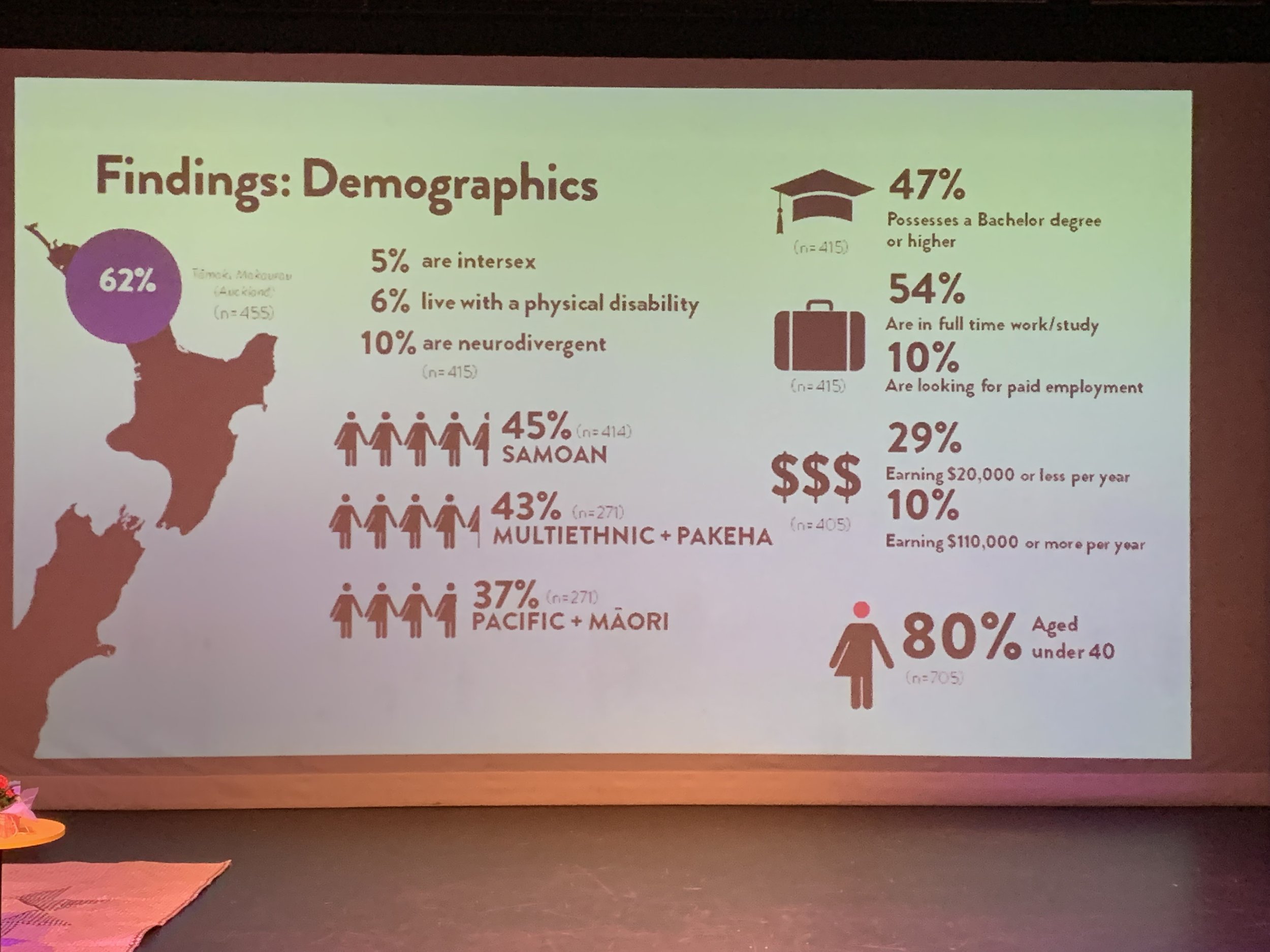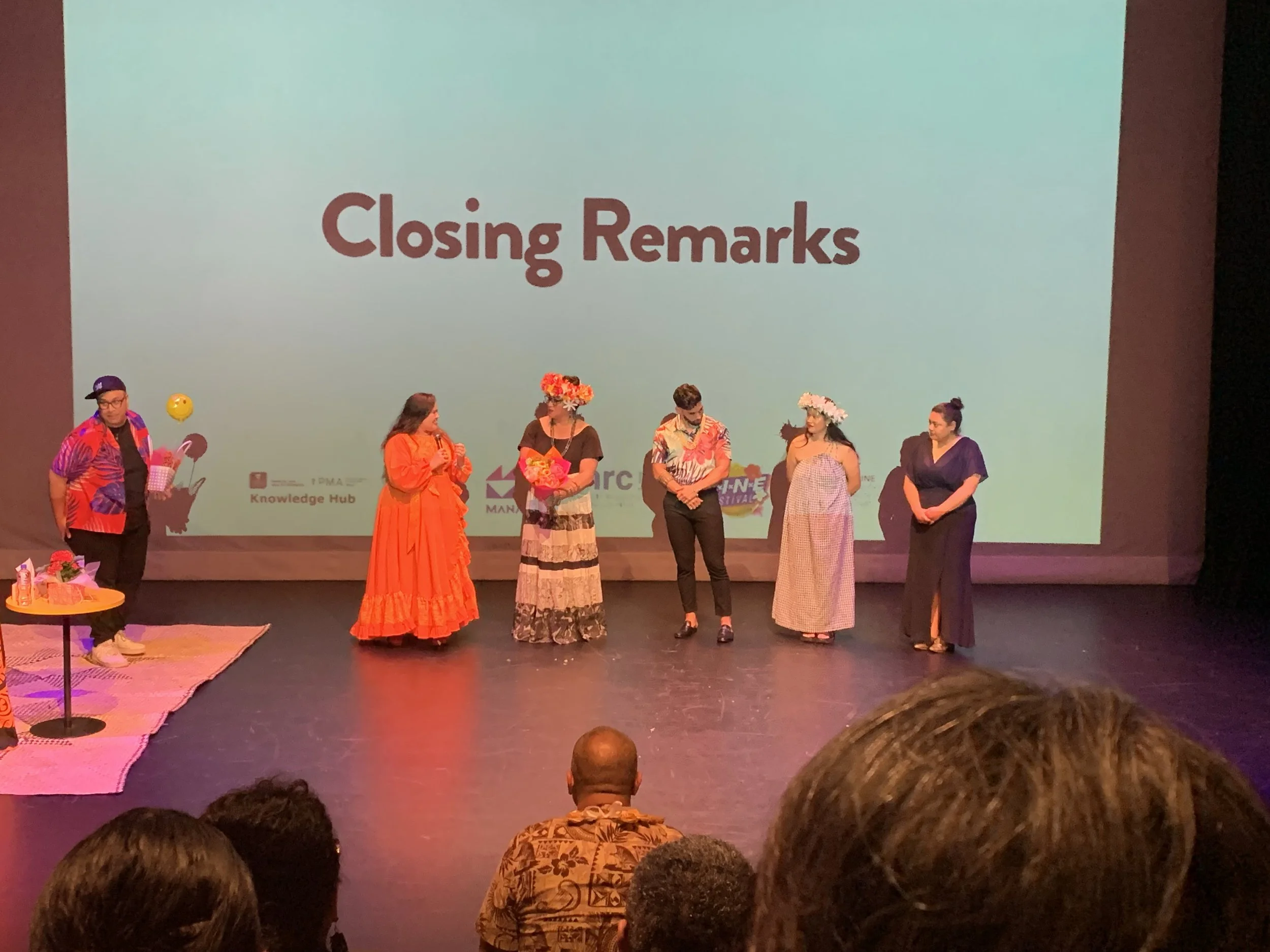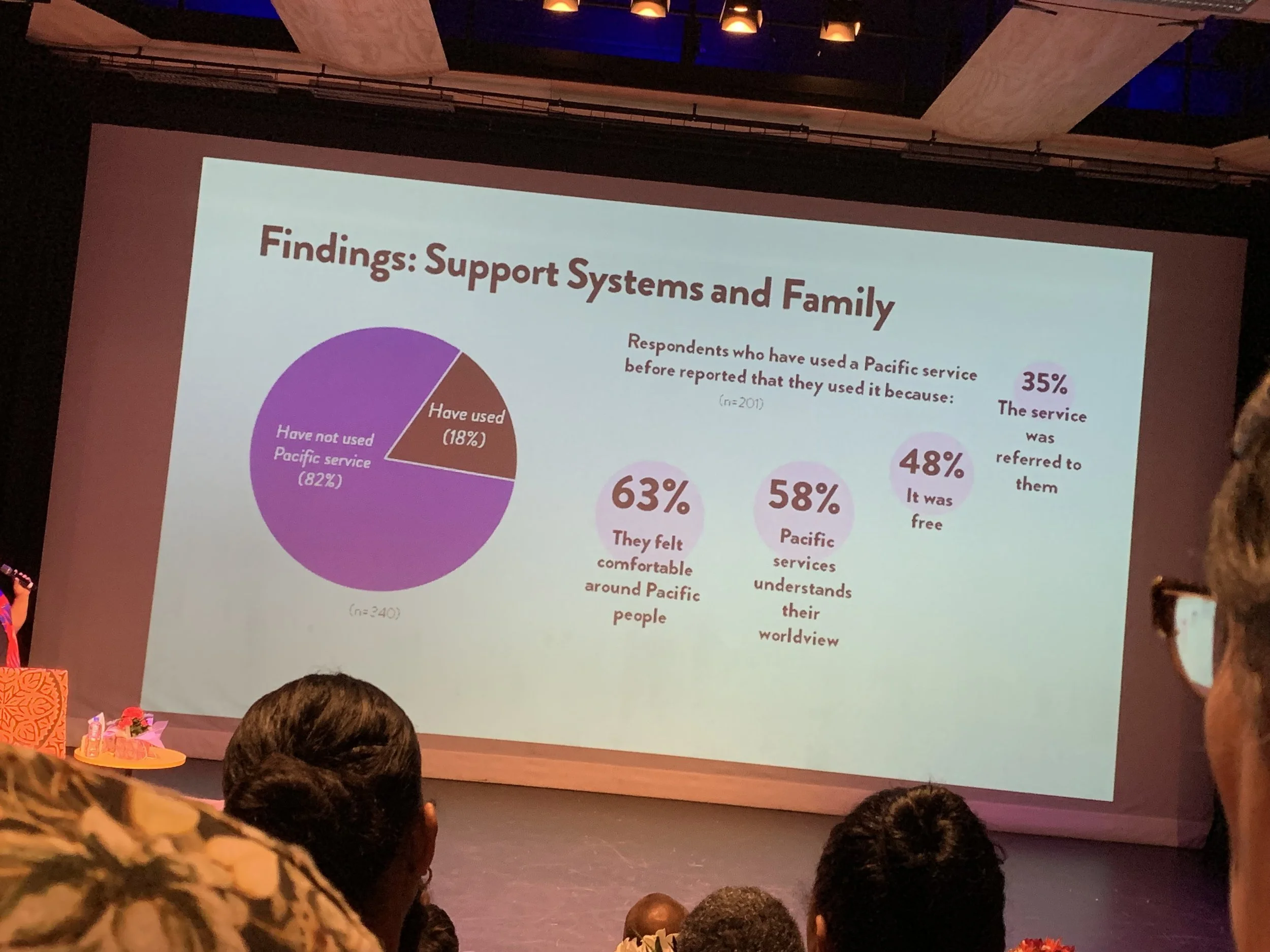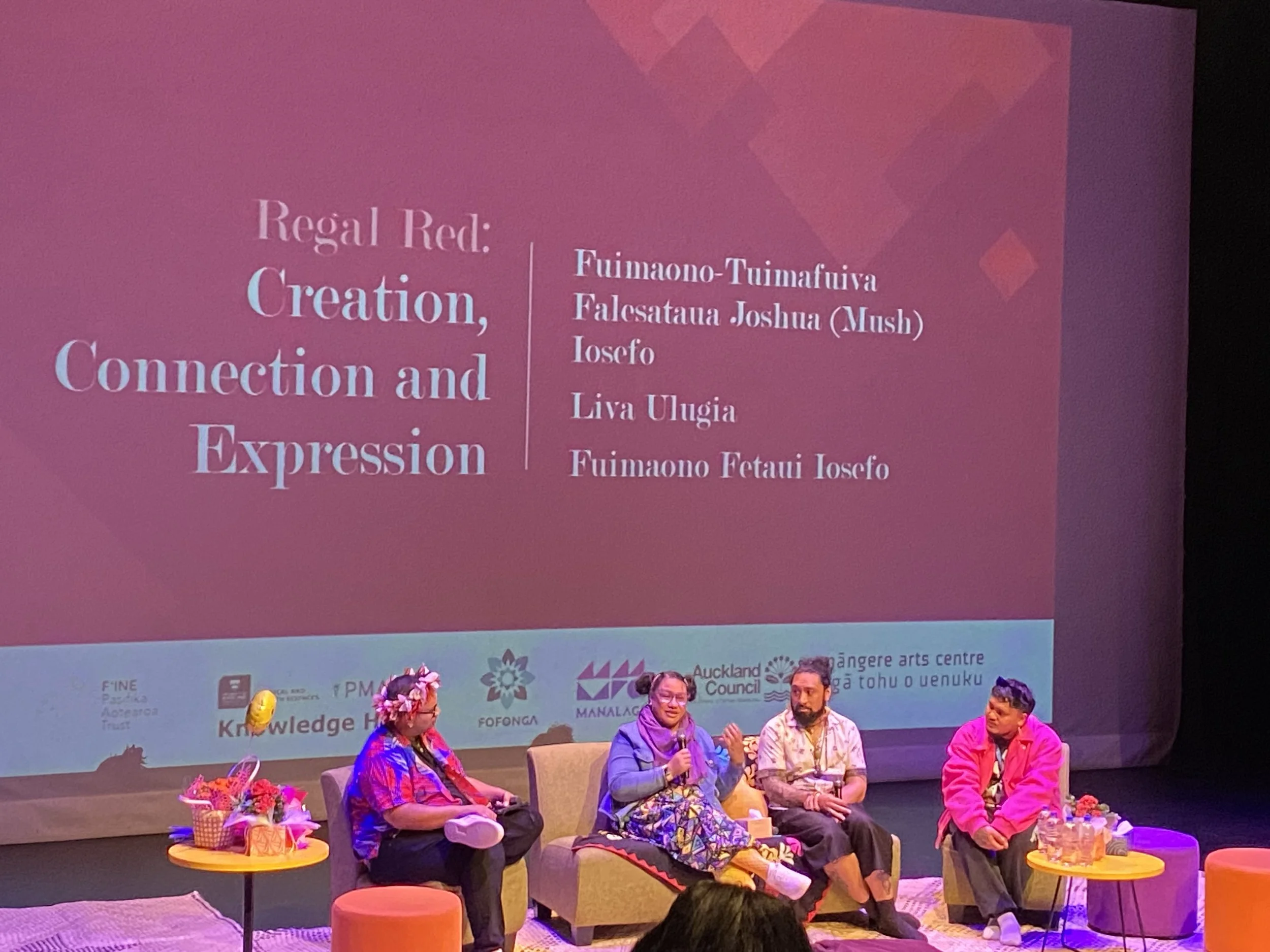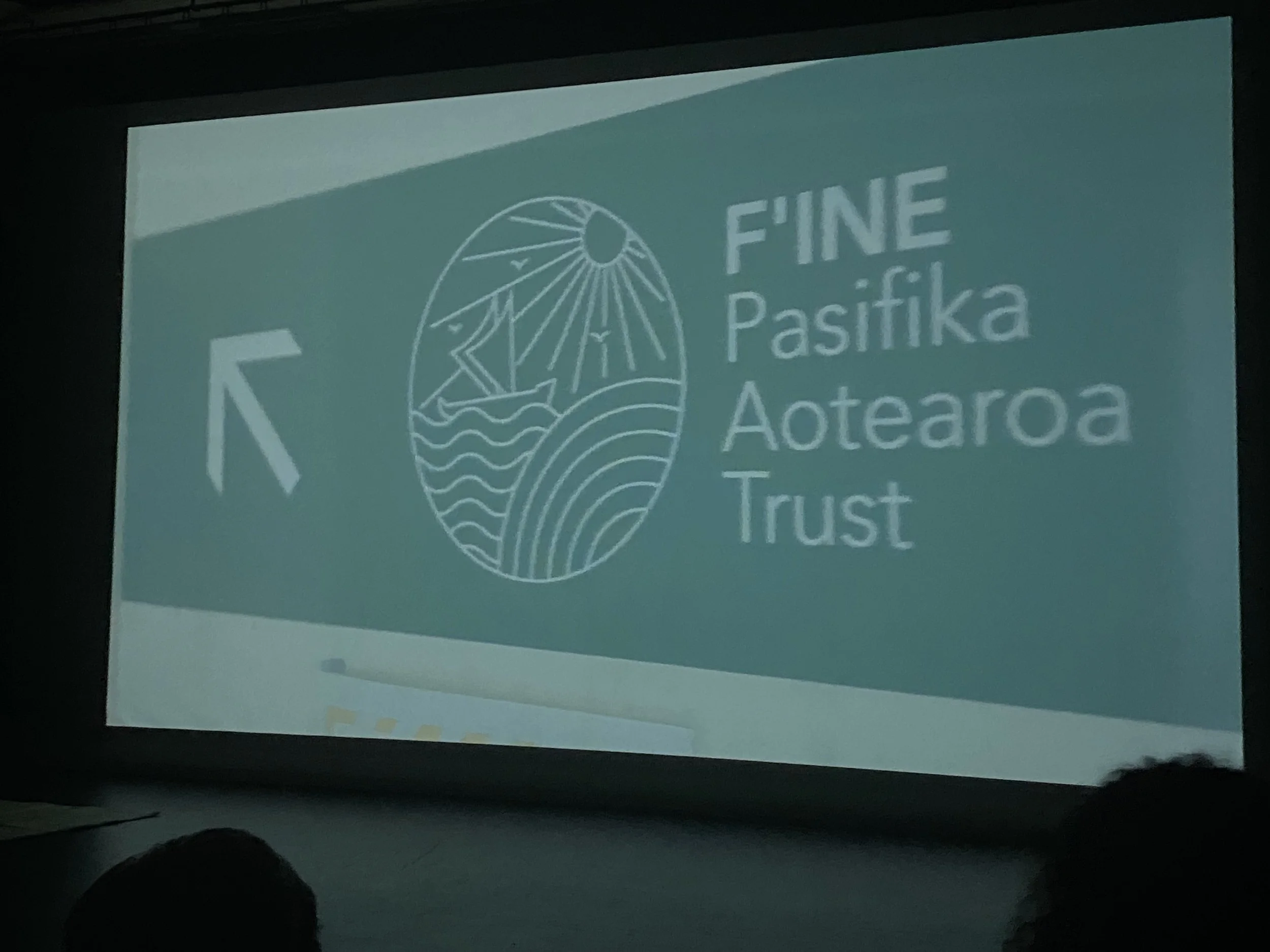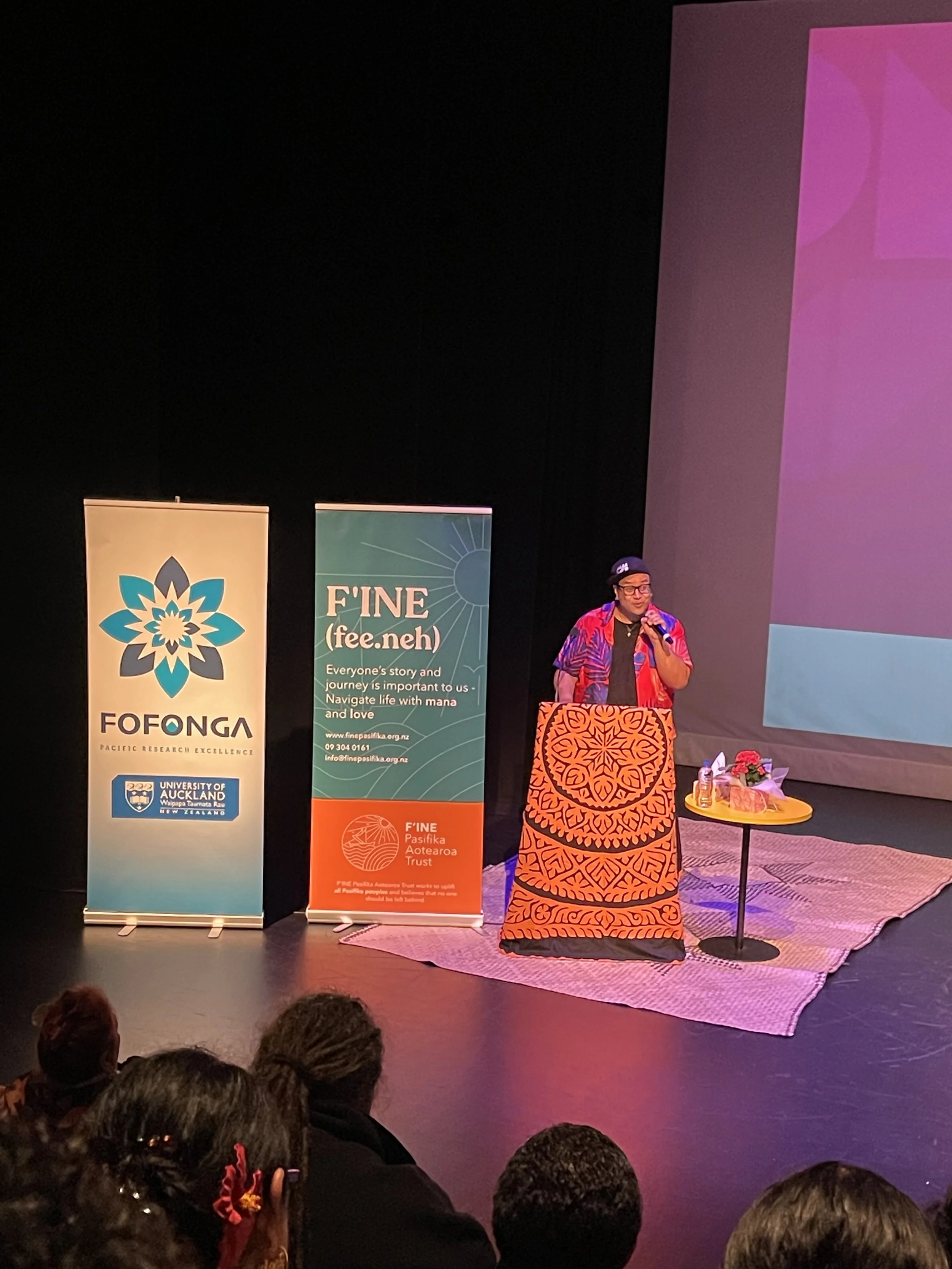My first experience at F’INE FEST 2023
Written by Melissa Kuila Lama
F'INE FEST was an unforgettable experience that I am sincerely grateful to have been a part of. This annual event, boasting a rich history spanning over a decade, serves as a vibrant and secure space for the Pasifika Rainbow community to unite and celebrate their authentic selves in all their splendour.
At the helm of F'INE FEST is the remarkable Phylesha Brown-Acton, the Executive Director and a prominent advocate for the Pasifika Rainbow community in both Aotearoa and the wider Pacific region. Her tireless efforts have reverberated globally, ensuring that the voices of Pasifika Rainbow communities echo across borders.
The festival commenced with a compelling two-day "F'INE fest ideas symposium," skilfully orchestrated by the insightful Seuta’afili Dr. Patrick Thompson from the University of Auckland. This symposium served as a gathering point for esteemed scholars and researchers specialising in the study of Pasifika rainbow communities' voices. Below, I'll provide a brief overview of some of the influential speakers and thought-provoking panels that I had the privilege of immersing myself in during these two enlightening days.
F’INE Priorities:
Restoring cultural practices that uplift and centres Pacific people.
Empowers voice and visibility of Pacific MVPFAFF+ / LGBTQI+, Rainbow and Queer people.
Nurtures healthy relationships between Pacific MVPFAFF+ / LGBTQI+, Rainbow and Queer people, their families, communities, and society.
Facilitates the restoration of mana and dignity of Pacific peoples.
Advocates in improving health and wellbeing for Pacific peoples.
Fuimaono Dr Karl Pulotu- Enderman – Opening keynote speaker
Fuimaono kicked off the symposium with a poignant reflection on his personal journey as a gay Samoan man, navigating life in both Samoa and Aotearoa. With over 30 years of experience in the health sector, specializing in mental health, Fuimaono provided a unique perspective on the challenges and triumphs he faced in his professional life as someone openly embracing his identity.
During his address, Fuimaono openly shared the highs and lows of his career, shedding light on the complexities that arose due to his identity. In a heartfelt tribute, he acknowledged the invaluable support of advocates within his community who stood by him during times when acceptance seemed elusive from those closest to them.
Fuimaono emerged as a pivotal figure in shaping numerous reforms and legislations that played a crucial role in decriminalizing the existence of the Pasifika rainbow community in Aotearoa. From advocating for sex workers' rights to championing the cause of same-sex marriages, his influence extended far beyond his personal journey.
Driven by a commitment to leveraging his academic knowledge and extensive experience, Fuimaono actively challenged decision-making processes that frequently marginalized his community. Unfortunately, the consequence of this exclusion was evident in the enduring discrimination, harassment, and disparate health outcomes faced by many in the Pasifika rainbow community.
Dr. Karl Pulotu-Enderman's presence at the symposium was undeniably powerful, setting the tone for the entire week of F’INE fest. His narrative not only illuminated the struggles faced by the Pasifika rainbow community but also emphasised the urgent need for acknowledgment and inclusion of their unique needs in decision-making processes.
Fuimaono's impactful insights reverberated throughout the event, sparking essential conversations about diversity, acceptance, and equity.
Penni Wolfgramm- “Wellbeing for Pasifika Rainbow Community”
Penni Wolfgram, a dedicated PhD student at the University of Auckland, is on the verge of completing her thesis, delving into the experiences of Tongan ‘Leiti’ individuals in Aotearoa. Penni, also a clinical psychology student, proudly identifies as a ‘Leiti’ and is committed to elevating and centering the voices of her community through her research.
When questioned about the significance of her chosen focus, Penni confidently emphasised the importance of not overlooking the voices of those who are often marginalised or excluded from mainstream conversations. Her research, rooted in Pasifika perspectives, specifically centres on the voices and rights of the Tongan rainbow community. Penni's goal is to create a space of love and understanding for the ‘Leiti’ community and, more broadly, the wider Pasifika rainbow community.
Penni passionately expressed that cultivating an open heart and fostering love for all individuals are essential steps towards collective progress. She believes that by embracing these values, we can truly begin to live and move forward together.
The need for more comprehensive Pasifika rainbow data within our systems and academia was widely acknowledged by scholars and academics. Penni stands among those advocating for change, particularly from an ethnic-specific perspective and lens. She is determined to contribute to filling the gap in our understanding and representation of the Pasifika rainbow community.
Cocoa Chandlier Glamour and Representation “Beauty Pageants and the art of Drag”.
Cocoa stands as a prominent figure and trailblazer in the dazzling realm of glamour and pageantry in Hawaii. Her esteemed reputation is built on a rich history of competition and a commitment to mentoring the next generation of pageant contestants within the Pasifika Rainbow community. Beyond the glitz and glamour, Cocoa serves as a lecturer at the National University of Hawaii, dedicating years to ensuring that Transwomen in her homeland have a platform to express themselves through the realms of creativity and art.
Throughout her journey, Cocoa has consistently advocated for stronger connections between Hawaii and the broader Pacific region. She envisions a bridge similar to the Pasifika Rainbow organization in Seattle, USA, and supports ‘UTOPIA’, another organisation in the USA working tirelessly to diminish the gap between these two communities. Despite occasional feelings of isolation, Cocoa and UTOPIA are eager to foster an enduring relationship with the Pacific region, promoting a sense of unity and growth within the community.
Cocoa's tireless efforts extend beyond her home turf, as she invests significant time traveling across the Pacific. Her mission: to bolster the engagement and accessibility of pageants for the Pasifika Rainbow community. Through her dedication, Cocoa aspires to create a community where individuals are not only celebrated for who they are but also find love, acceptance, and safety in every moment.
Manalagi Report - LAUNCH
The Manalagi Project: Empowering Aotearoa's Pacific Rainbow Health and Wellbeing
The Manalagi: Aotearoa Pacific Rainbow Health and Wellbeing Project, generously funded by the Health Research Council of New Zealand, finds its home at the University of Auckland in collaboration with F'INE Pasifika Aotearoa. This groundbreaking initiative strives to establish a secure cultural research space where Pacific Rainbow+ communities can articulate their distinctive health and wellbeing requirements.
Addressing Stigma
In New Zealand, both Pacific and Rainbow individuals often encounter stigma as a significant hurdle to their health and wellbeing. The Manalagi Project embraces a co-community-driven, embedded, and owned ethos, aiming to empower Pacific Rainbow communities to actively participate in co-designing health policies and services through research.
Project Objectives
Over a three-year period, the project will meticulously document self-reported health information from those who self-identify as part of the Pacific Rainbow community. This comprehensive approach involves extensive community consultation, the distribution of a Pacific Rainbow Health Survey targeting 500-1000 respondents, and a culturally sensitive gathering and documentation of 50-60 Pacific Rainbow individual narratives. These narratives will illuminate their experiences with health service delivery by blending talanoa, Pacific concepts of space such as the vā, and relationality through qualitative interviews.
Collaborative Opportunities
The potential for collaboration between the PCF and this report is extensive. The report's scope provides context and robust evidence that aligns with findings in the PCF Perceptions of New Zealanders of the Pacific, particularly concerning the young and growing Pacific population. Having evidence-based facts about the Pasifika rainbow community strengthens our collective ability to seek further collaborations, fostering better outcomes for this vital group in our society.
Conclusion
The Manalagi Project stands as a symbol of hope, fostering inclusivity and empowerment for Aotearoa's Pacific Rainbow communities. By amplifying their voices and experiences, this initiative contributes to the creation of more responsive and effective health policies and services, ensuring a brighter and healthier future for all.
Nurturing Voices: Insights from Panel Discussions on Transgender and Lesbian Experiences in Pacific Communities
In the midst of captivating keynote speakers and expert presentations, F’INE orchestrated illuminating panel discussions, giving voice to representatives from the Pasifika rainbow community across Aotearoa. These discussions delved into the pressing issues affecting the intersectionality of their community. Notably, the challenges faced by young Pasifika individuals in seeking familial support and the quest for accessible and supportive healthcare without exacerbating existing disparities took centre stage. As a cis-gender woman, I found these panels profoundly informative and felt privileged to occupy a space where vulnerability was embraced.
A poignant moment arose when a Tongan scholar, identifying as a lesbian, shared the hurdles she encounters while navigating her role as a Tongan female within her culture. Her courageous disclosure shed light on the often overlooked struggles within Tongan culture, prompting me to reflect on the roles I might take for granted. Her candid discussion highlighted the impact on mental health, stressing the imperative need for progress in the realm of "family support."
Another set of panels explored the significance of ‘Drag’ and ‘Pageants’ as pivotal events for transgender women in the community. Panellists articulated how creative arts and performance offer them a platform to authentically be themselves. The sustainability of these events, as underscored in the Manalagi report, is crucial, with over 80% of survey participants citing performing arts and creativity spaces as their safest outlets for self-expression.
In conclusion, supporting this annual festival is not just an option but a necessity. The diversity of thought and the unwavering determination of Pasifika rainbow individuals to assert their voices are of paramount importance, particularly for the younger and future generations in Aotearoa. The potential for collaboration with scholars and researchers in this field is an avenue that PCF should consider exploring.
The festival represents the opportunity to empower, foster understanding and unity within the rich tapestry of Pasifika culture.

